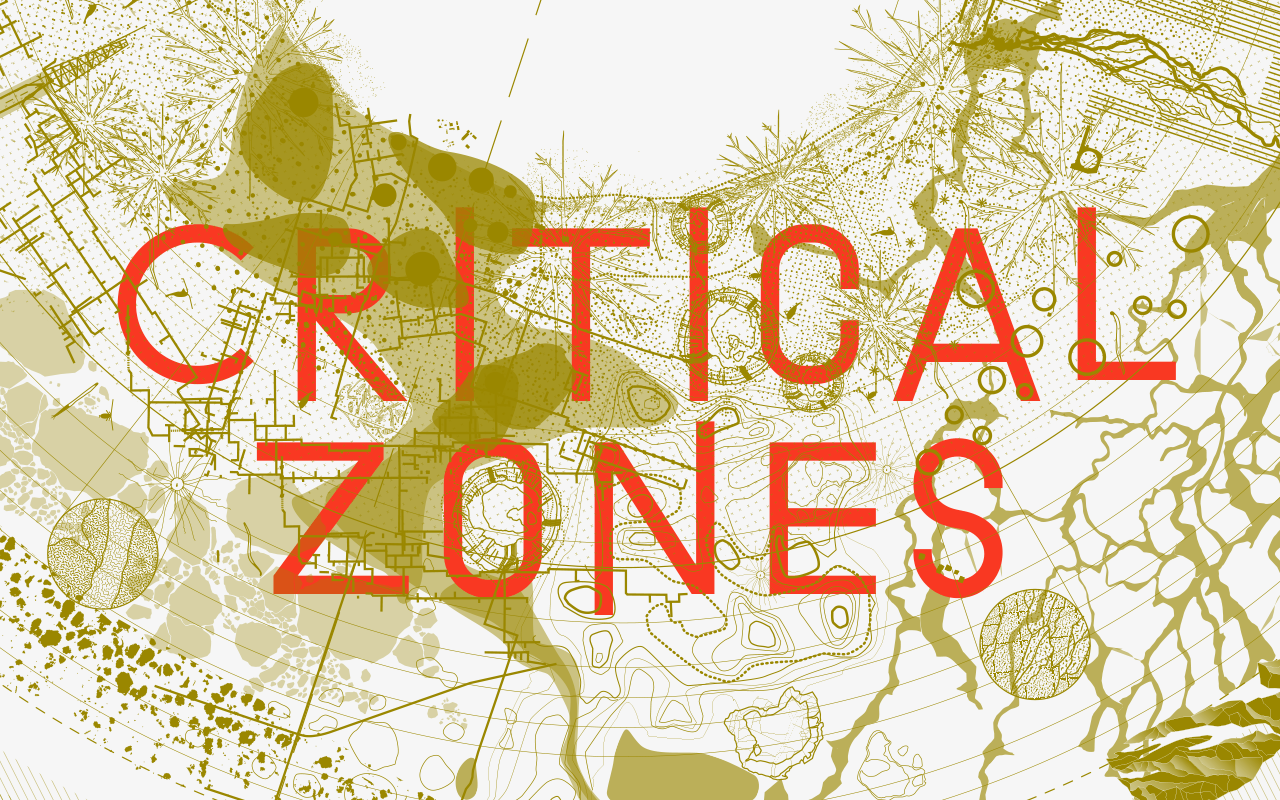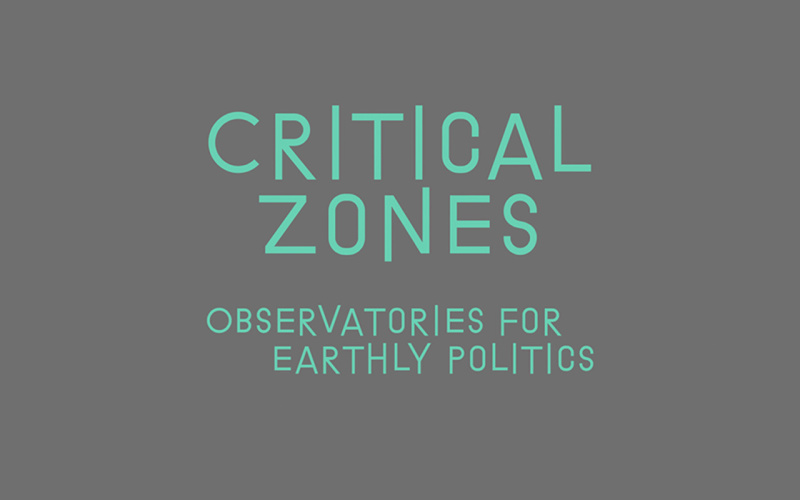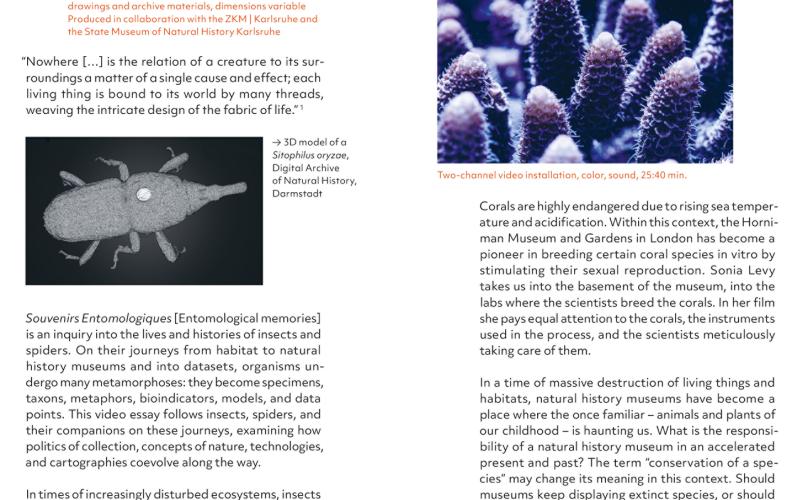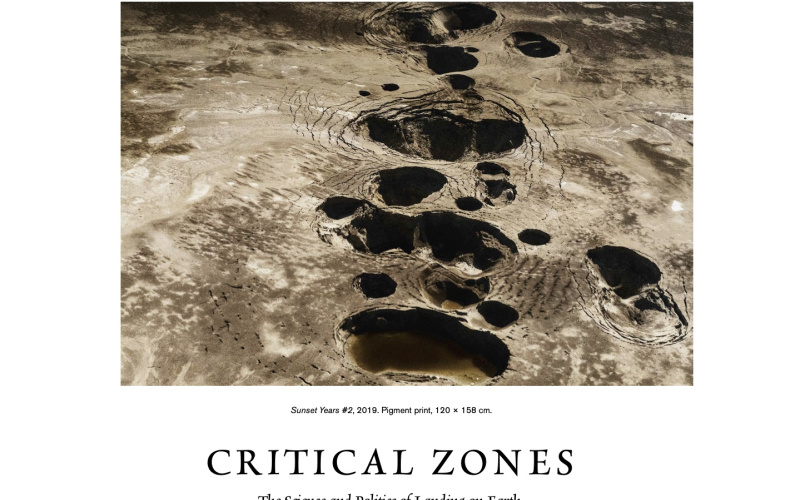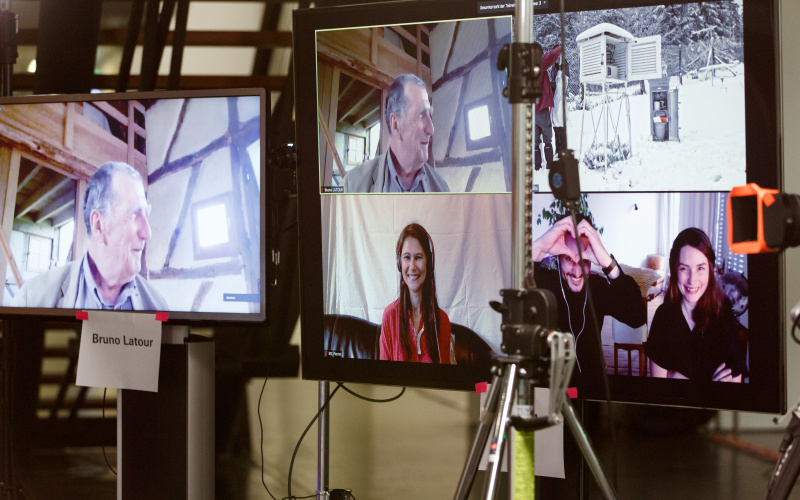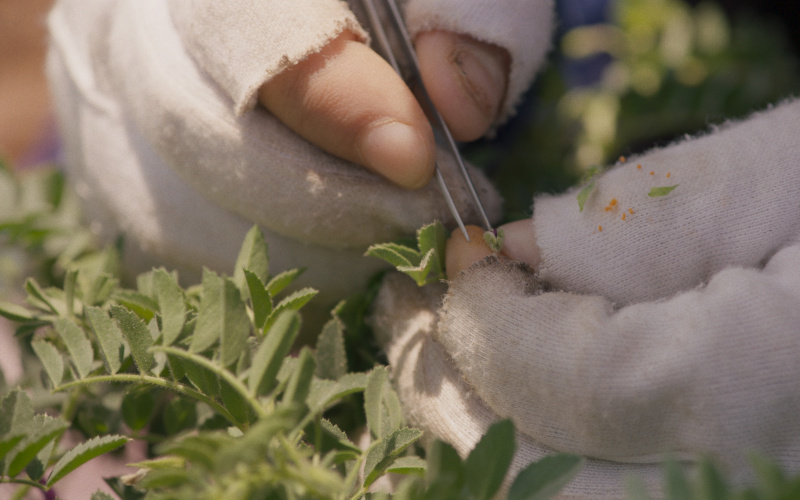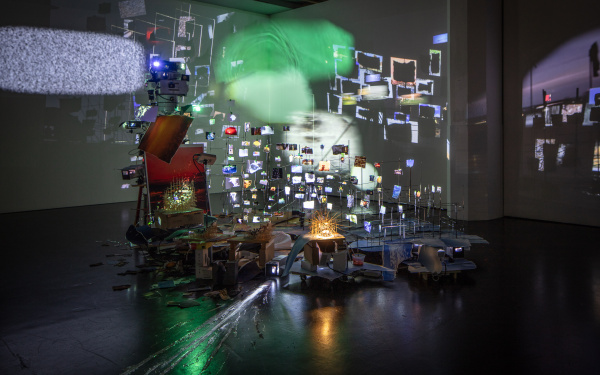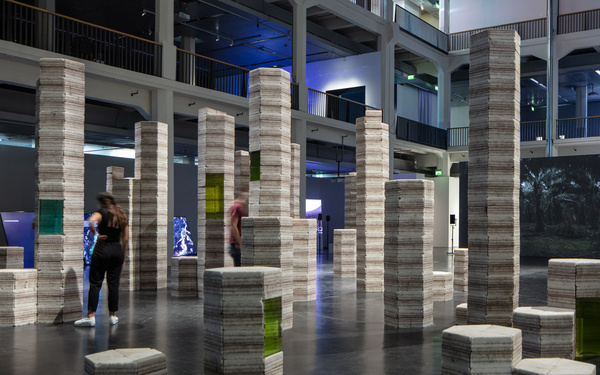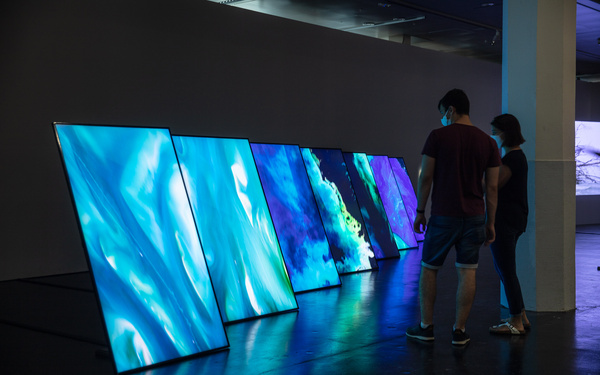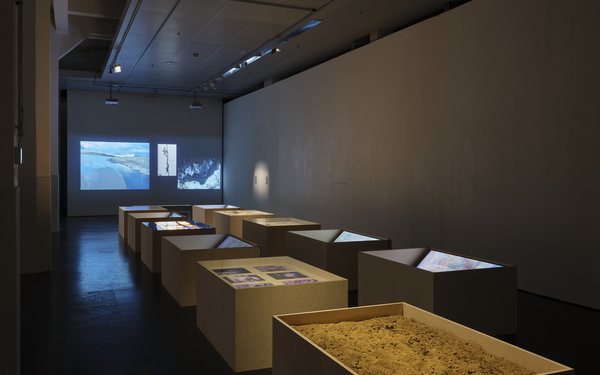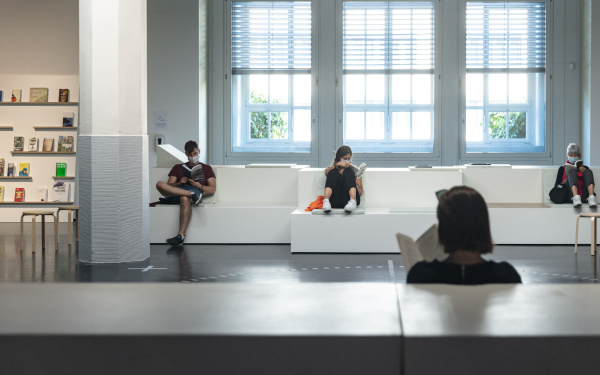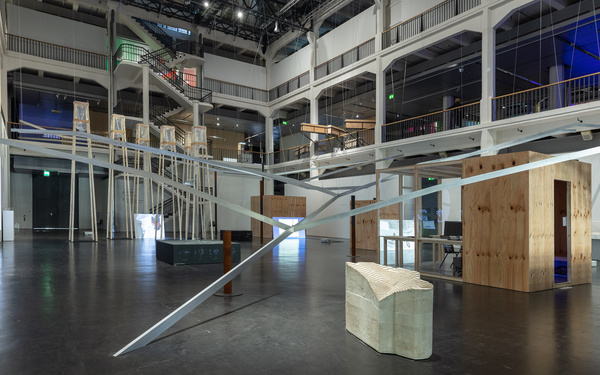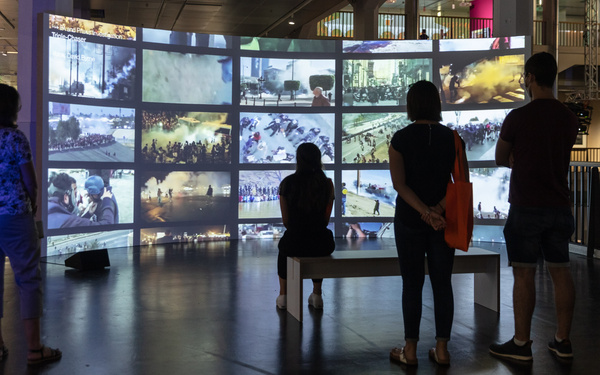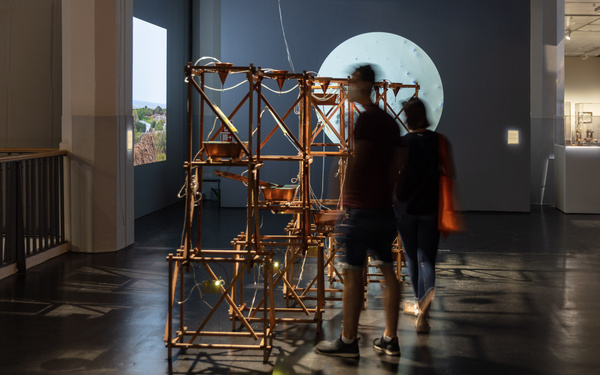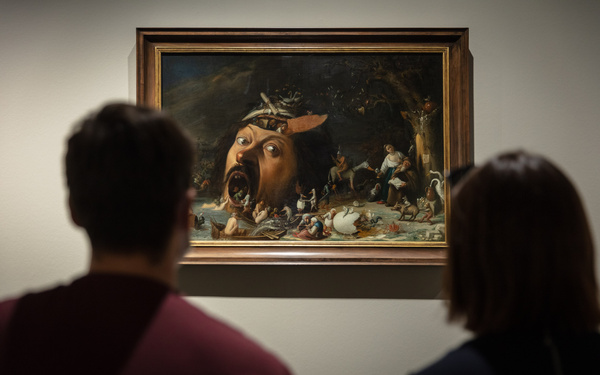- Exhibition
Critical Zones
Observatories for Earthly Politics
Sat, May 23, 2020 – Sun, January 09, 2022
- Location
- Atrium 1+2, ground floor + 1st floor
- Entrance fee
- Museum Admission
For a long time the reactions of Earth to our human actions remained unnoticed, but in recent times with the protest movement Fridays for Future climate crisis has moved into public consciousness. The thought exhibition »CRITICAL ZONES« invites us to deal with the CRITICAL situation of the Earth in various ways and to explore new modes of coexistence between all forms of life.
By now everybody knows that there is an existential threat to our collective conditions of existence, but very few people have any idea of how to cope with this new CRITICAL situation. The citizens of many developed countries appear disoriented; it is as if they were asked to land on a new territory – a new Earth – whose reactions they have ignored for a long time.
The Earth as a network of CRITICAL ZONES
The hypothesis we want to propose is that the best way to map this new Earth is to see it as a network of CRITICAL ZONES. Generated over eons of time by various life forms, these CRITICAL ZONES form a surface only a few kilometers thin. Those life forms had completely transformed the original geology of the Earth, before humanity transformed it yet again over the last centuries.
Over the years, scientists have installed multiple OBSERVATORIES to study these CRITICAL ZONES and have made us aware of the complex composition and extreme fragility of this thin layer inside which all life forms, humans included, have to cohabit. They have renewed Earth science in a thousand ways and very much in a way that Alexander von Humboldt would have approved.
A new turn towards the EARTHLY
Increasingly, scientists, artists, activists, politicians, and citizens are realizing that society is not centered solely on humanity, but it has to become EARTHLY again if it wishes to land without crashing. The modern project has been in flight, unconcerned by planetary limits. Suddenly, there is a general movement toward the soil and new attention to the ways people might inhabit it. POLITICS is no longer about humans making decisions on their own and for themselves only, but has become an immensely more complex undertaking. New forms of citizenship and new types of attention and care for life forms are required to generate a common ground.
The exhibition as an OBSERVATORY OF CRITICAL ZONES
Over a period of several months ZKM will host an exhibition conceived as a scale model to simulate the spatial novelty of this new land as well as the diversity of relations between the life forms inhabiting it. It will serve as an OBSERVATORY OF CRITICAL ZONES allowing visitors to familiarize themselves with the new situation. This special combination of thought experiment and exhibition was developed by Peter Weibel and Bruno Latour in their previous collaborations at ZKM. »Iconoclash« in 2002, »Making Things Public« in 2005, and »Reset Modernity!« in 2016 constitute the three former »thought exhibitions« (Gedankenausstellungen) that resulted from their intensive working relationship which now spans twenty years.
Critical Zones Study Group at Karlsruhe University of Arts and Design (HfG)
Under the guidance of Bruno Latours and in collaboration with Martin Guinard-Terrin (curator), Bettina Korintenberg (curator, ZKM Karlsruhe) and Daniel Irrgang (media scientist, University of Arts and Design Karlsruhe), the participants of the research seminar »Critical Zones« worked both conceptually and with concrete contributions on the preparation of the exhibition of the same name at the ZKM.
The term »Critical Zone« is taken from the geo-sciences and describes the biochemical, fragile layer of the earth, its surface on which life is created. By Bruno Latour, the term is extended to a critical, participatory relationship to our living world, whose threatened state has reached an unprecedented scale in the Earth's now man-made history. Latour has described this worldwide situation, which affects all living beings on the planet, as a »new climate regime«. It is not limited to ecological crises, but touches on questions of politics and cultural history as well as ethical and epistemological changes of perspective.
Curatorial Committee
- Curator
- Curator
- Curator
- Curator
Curatorial Advisory Board
Alexandra Arènes (architect)
Bruce Clarke (literary scholar)
Jérôme Gaillardet (geochemist)
Joseph Koerner (art historian)
Daria Mille (curator)
Critical Zones Study Group at Karlsruhe University of Arts and Design (HfG)
Exhibition Team
Bettina Korintenberg (curatorial project management)
Daria Mille (curatorial project management)
Barbara Kiolbassa (museum communication)
Jessica Menger (curatorial assistance)
Daniel Irrgang (web editor and coordinator Critical Zones Study Group)
Matthias Gommel (scenography)
Anne Däuper (technical project management)
Graphic Design
operative.space (Robert Preusse, Stefanie Rau)
Organizing Organization / Institution
ZKM | Center for Art and Media
Partners
Hydrogeochemical Environmental Observatory: Strengbach water catchment area, Karlsruhe Institute of Technology (KIT), Karlsruhe State Academy of Art and Design (HfG), Karlsruhe State Museum of Natural History, TBA21 - Thyssen-Bornemisza Art Contemporary Academy
In exchange with local initiatives from Karlsruhe, among others:
Bürgeraktion Umweltschutz, Büro SchwarzErde, Coaching Community, Energietransformation im Dialog, Extinction Rebellion Karlsruhe, Greenpeace Karlsruhe, ITAS / Quartier Zukunft, Klimakollektiv Karlsruhe, KonsumGlobal, KonsumGlobalKarlsruhe, NABU Gruppe Karlsruhe, Naturschutzzentrum Karlsruhe-Rappenwörth, Netzwerk für Natur- und Umweltbildung Karlsruhe, Open Knowledge Lab Karlsruhe, Parents for Future Karlsruhe, Scientists for Future Karlsruhe, Artists for Future Karlsruhe, Streuobstwieseninitiative im Stadt- und Landkreis Karlsruhe e.V., Gartenfreunde Karlsruhe e.V., Umwelt- und Arbeitsschutz
